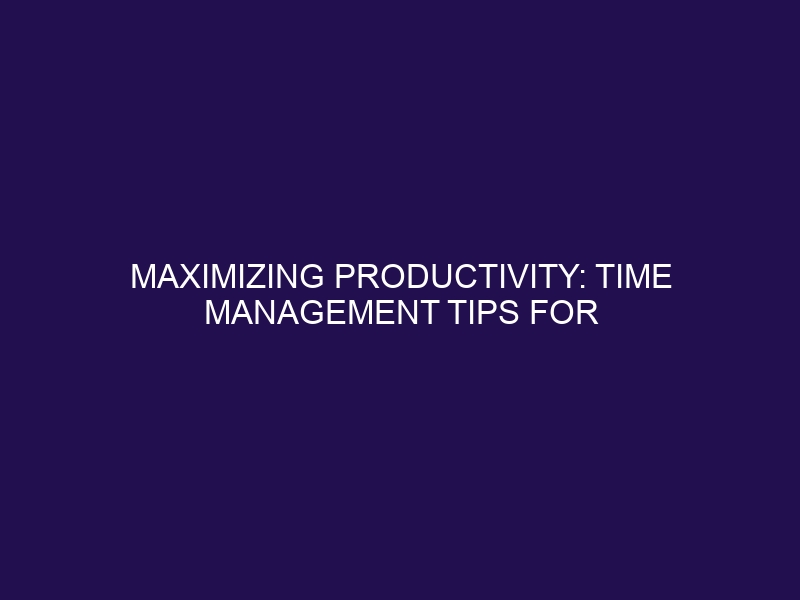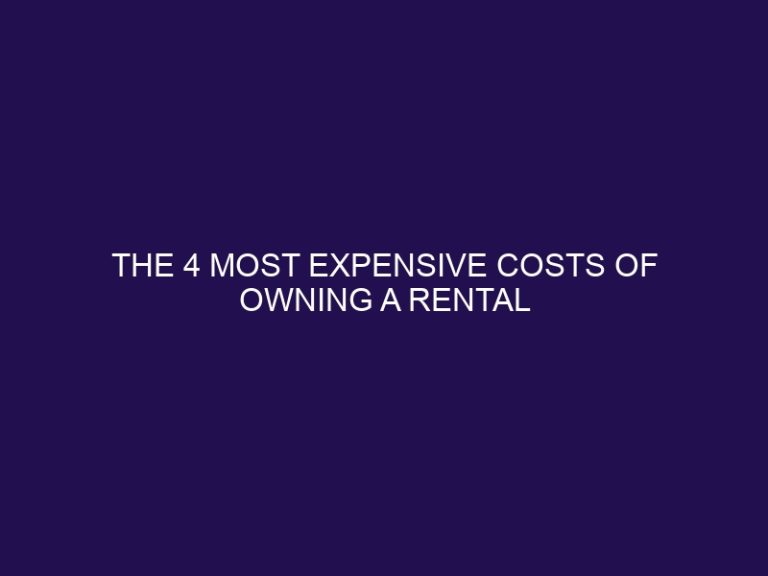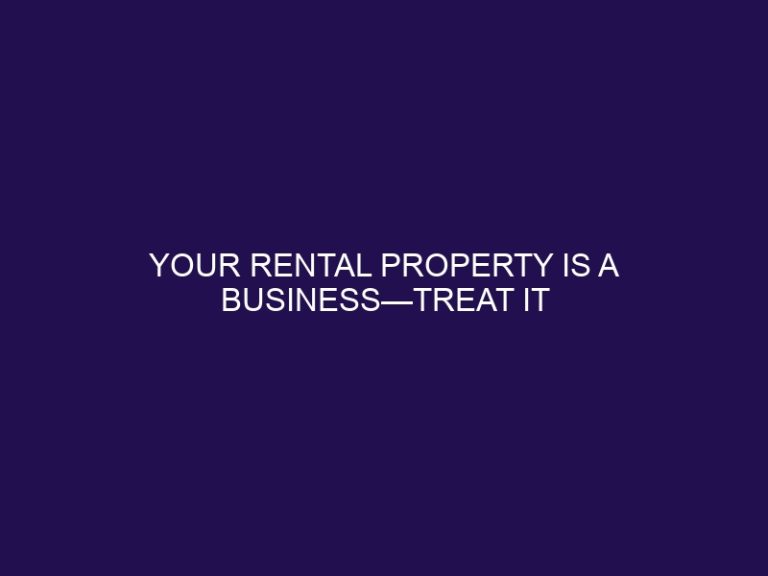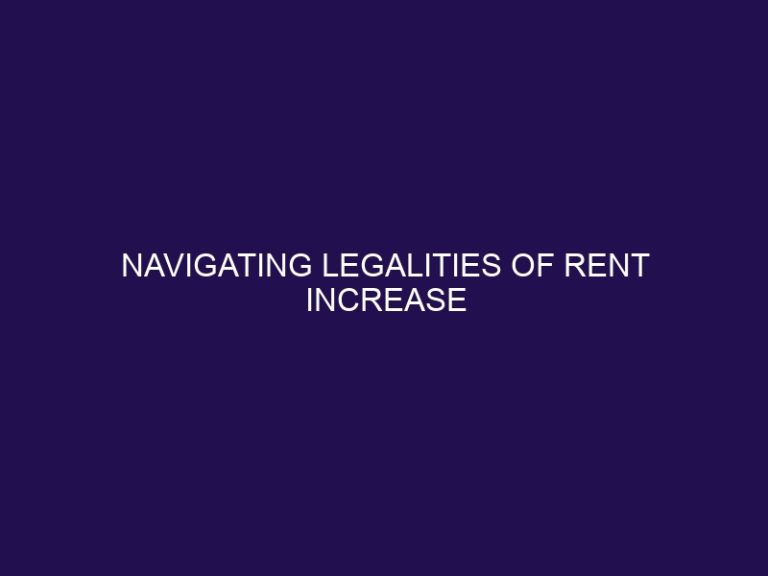Maximizing Productivity: Time Management Tips for Busy Landlords
“Welcome to our comprehensive guide on Time Management Tips for Busy Landlords. As a landlord, your time is one of your most valuable resources. Whether you manage multiple properties or are balancing your landlord duties with other commitments, effective time management is essential for success.”
In this article, we will explore the importance of time management for landlords and provide practical strategies to help you make the most of your time. From creating a comprehensive to-do list to utilizing special techniques tailored for landlords, we’ll cover it all. So, if you’re ready to optimize your time and streamline your landlord responsibilities, let’s dive into the world of time management for landlords.
Key Takeaways:
Introduction to Time Management for Landlords
Time management is a crucial aspect of successful property management, especially for landlords overseeing multiple rental properties. Efficient time management not only ensures smooth operations but also allows professional landlords to balance their daily routine effectively.
Challenges faced by landlords in managing multiple properties include maintenance requests, tenant communication, financial tracking, and legal obligations. Without effective time management, these tasks can quickly become overwhelming, leading to stress and potential oversights. By prioritizing tasks, setting realistic timelines, and utilizing organizational tools, landlords can streamline their operations efficiently.
Effective time management enables landlords to structure their daily routines, allocating time for property inspections, administrative tasks, and responding to tenant inquiries. It also allows them to proactively address maintenance issues, conduct regular property evaluations, and stay updated with market trends and changes in rental laws.
Proper time management fosters a balanced approach to work and personal life, preventing burnout and enhancing overall well-being. It enables landlords to allocate time for personal relaxation, family commitments, and pursuing personal interests while ensuring that their properties are managed effectively.
Understanding the Value of Time
Understanding the value of time is essential for landlords as it directly impacts their ability to efficiently manage properties, prioritize tasks, and maintain operational efficiency.
Effective time management is the linchpin of successful property management. By recognizing the importance of time, landlords can optimize property-related tasks, allocate adequate resources, and meet crucial deadlines. Prioritizing critical activities such as routine property inspections, maintenance schedules, tenant communication, and financial record-keeping can significantly enhance overall operational efficiency. Proactive time management also allows for strategic planning, fostering tenant satisfaction, and ultimately boosting the property’s market value.
Importance of Time Management for Busy Landlords
Time management holds immense significance for busy landlords who are juggling multiple responsibilities within their property management business, requiring strategic scheduling and efficient task prioritization for optimal productivity.
With numerous properties to oversee, rent collection, maintenance issues, and tenant communications can quickly become overwhelming. Effective time management enables landlords to allocate their resources efficiently, ensuring that critical tasks are addressed promptly. It allows them to carve out time for business growth strategies and professional development, which are essential for long-term success in the competitive real estate industry.
Prioritizing tasks based on urgency and impact is crucial for streamlining operations and fostering positive landlord-tenant relationships.
Effective Time Management Strategies
Implementing effective time management strategies is essential for property managers, involving prioritization of tasks, delegation of responsibilities, and maintaining organizational efficiency.
One effective time management strategy for property managers is to prioritize tasks based on urgency and importance. This involves identifying critical tasks that require immediate attention, such as maintenance issues or tenant concerns, and allocating time and resources accordingly.
Another crucial aspect is delegating responsibilities to capable team members. Property managers can enable their staff by entrusting them with suitable tasks, allowing them to focus on high-priority matters while fostering a sense of ownership and accountability.
Maintaining organizational efficiency is key. Utilizing digital tools and platforms, such as property management software, can streamline administrative processes, record-keeping, and communication, enabling property managers to stay organized and operate more efficiently.
Making a Comprehensive To-Do List
Creating a comprehensive to-do list is a fundamental step in effective time management, enabling landlords to organize tasks, enhance operational efficiency, and streamline their daily routine.
By incorporating priority tasks and deadlines, landlords can prioritize important responsibilities and allocate time appropriately. Utilizing a digital platform or a traditional pen-and-paper approach, they can list tasks, categorize them by urgency, and set achievable goals. The to-do list serves as a record of completed activities, providing a sense of accomplishment and motivating further productivity. By regularly updating and revising the list, landlords can adapt to changing priorities and maintain a proactive approach to task management.
Setting Clear Priorities
Setting clear priorities is vital for efficient time management in property-related tasks, allowing landlords to focus on critical property management activities and address key property-related concerns effectively.
When property managers establish clear priorities, they are better equipped to allocate their time and resources to meet the most pressing needs of their properties. This ensures that essential tasks such as tenant communication, maintenance, and financial management are addressed promptly, reducing the risk of issues escalating and impacting the overall well-being of the property.
By prioritizing tasks effectively, property managers can also streamline their workflows, improve efficiency, and ultimately enhance the overall value of the properties under their care.
Delegating and Outsourcing Tasks
Delegating and outsourcing tasks play a pivotal role in effective time management for property managers, enabling them to streamline operations, focus on core responsibilities, and leverage external support through a property management system.
By delegating tasks such as maintenance requests, tenant communications, and financial reporting, property managers can free up valuable time to concentrate on strategic decision-making and enhancing tenant satisfaction, improving overall operational efficiency. Outsourcing specialized tasks like property inspections or accounting can ensure that these responsibilities are handled by experts, minimizing errors and ensuring compliance.
Utilizing a property management system can further enhance the benefits of delegation and outsourcing, as it provides a centralized platform for managing various tasks and enables seamless collaboration with external service providers. This integration promotes transparency, accountability, and real-time updates, allowing property managers to stay informed and in control without getting bogged down by administrative details.
Utilizing Calendar and Online Tools
Utilizing calendars and online tools is an effective time management strategy for landlords, facilitating efficient scheduling, online payments, and seamless integration with property management systems.
By incorporating calendars and online tools into property management practices, landlords can streamline the scheduling of property showings, maintenance tasks, and rent collection deadlines. The convenience of digital calendars allows for easy coordination between multiple parties involved in property management, enhancing communication and minimizing scheduling conflicts.
Online tools enable landlords to accept online payments, making the rent collection process more convenient for both the tenants and the property owners. This helps in ensuring timely payments, reducing paperwork, and providing a secure digital trail for financial transactions.
The seamless integration of these tools with property management systems results in centralized control and automated updates. This integration enhances efficiency by reducing the need for manual input and minimizing the margin for error. It also enables the generation of reports and analytics for better decision-making in property management.
Special Techniques for Landlords
Landlords can employ special time management techniques such as efficient tenant screening processes and streamlined property management systems to enhance productivity and operational effectiveness within their rental properties.
By implementing efficient tenant screening processes, landlords can minimize the time spent on reviewing multiple applications and reduce the risk of placing unreliable tenants. This can be achieved through the utilization of comprehensive screening criteria, which may include credit checks, rental history, and income verification.
Integrating streamlined property management systems allows landlords to automate routine tasks, such as rent collection, maintenance requests, and lease renewals, thereby saving time and effort. These systems provide centralized platforms that enable easy access to crucial property information and facilitate seamless communication with tenants. These specialized time management techniques can significantly contribute to effective property management and enhance the landlord’s overall operational efficiency.
Thorough Tenant Screening Process
Implementing a thorough tenant screening process is a critical time management strategy for professional landlords, ensuring the selection of reliable tenants and the efficient management of rental properties.
By conducting a comprehensive tenant screening process, landlords can significantly reduce the risk of potential issues such as late payments, property damage, or lease violations. This process involves scrutinizing a tenant’s credit history, rental references, employment verification, and criminal background, contributing to knowledge-based decision making and improved property protection. A thorough screening process contributes to time-saving measures by minimizing the need for frequent tenant turnover, eviction proceedings, and property damage assessments, allowing landlords to focus on maintenance and creating a positive rental experience.
Implementing Online Rental Payments
Implementing online rental payments is a strategic time management technique for landlords, streamlining financial transactions, enhancing operational efficiency, and leveraging property management systems for seamless payment tracking.
With the increasing digitalization of various services, transitioning to online rental payments offers numerous advantages. One of the key benefits is the elimination of manual processes, reducing paperwork and enabling landlords to focus on other aspects of property management. It allows for automated payment tracking and reminders, minimizing late payments and providing a consistent revenue stream.
By integrating online rental payments with property management systems, landlords can access comprehensive financial reports, easily reconcile payments, and gain real-time insights into their rental income. This integration also ensures that payment data is directly synchronized with accounting platforms, simplifying financial record-keeping and tax preparation.
Ultimate Time Management Tip for Landlords
The ultimate time management tip for landlords is to leverage property management systems that facilitate automated processes, outsourcing non-core activities, and integrating efficient tenant screening mechanisms for optimized property management.
By embracing property management systems, landlords can streamline their daily operations, such as rent collection, maintenance requests, and lease agreements, leading to significant time savings.
Outsourcing non-core activities like accounting, legal matters, and property maintenance to specialized professionals or companies can free up valuable time for landlords to focus on strategic growth and expansion.
Integrating efficient tenant screening mechanisms, including credit checks, rental history reviews, and background checks, can minimize the risks associated with problematic renters and reduce time spent resolving tenant-related issues.
Conclusion and Recap of Time Management Techniques
In conclusion, effective time management techniques, including the utilization of property management systems, online payment facilitation, and strategic tenant screening processes, are integral for landlords to ensure operational efficiency and productivity across their rental property portfolios.
Implementing robust property management systems can streamline tasks such as tracking rental payments, maintenance requests, and communication with tenants, thereby saving landlords significant time and resources. Integrating online payment facilitation simplifies the rent collection process, reducing the need for manual follow-ups and paperwork, and
- enhancing financial organization.
Employing strategic tenant screening processes can minimize tenant turnover, eviction proceedings, and related administrative burdens, ultimately saving landlords substantial time and effort.
Frequently Asked Questions
1. How can I effectively manage my time as a busy landlord?
Time management is crucial for landlords, especially those with a lot on their plate. To effectively manage your time, start by prioritizing tasks and creating a schedule. Set aside specific blocks of time for each task, and stick to it.
2. Is it important to delegate tasks as a busy landlord?
Absolutely! As a busy landlord, it’s important to delegate tasks to save time and avoid burnout. Consider hiring a property manager or outsourcing tasks like maintenance or bookkeeping to free up your time for other important responsibilities.
3. How can technology help with time management for landlords?
The use of technology, such as property management software, can greatly improve time management for landlords. These tools can help with tasks like tenant communication, rent collection, and maintenance requests, saving you time and streamlining processes.
4. What are some effective ways to stay organized as a busy landlord?
Staying organized is key for efficient time management. Consider creating a system for managing paperwork and important documents, using a calendar or scheduling tool to track tasks and deadlines, and regularly decluttering your workspace.
5. How can I balance my personal life with my responsibilities as a landlord?
It’s important to establish a work-life balance as a busy landlord. Set boundaries and stick to them, prioritize self-care, and consider delegating tasks to free up time for personal activities and relationships.
6. How often should I review and adjust my time management strategies as a landlord?
Time management strategies should be reviewed and adjusted regularly to ensure they are effective. As a landlord, consider evaluating your schedule and tasks every few months to make necessary changes and improvements to your time management approach.







